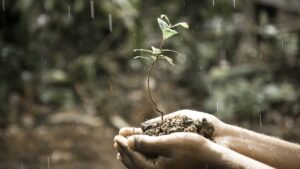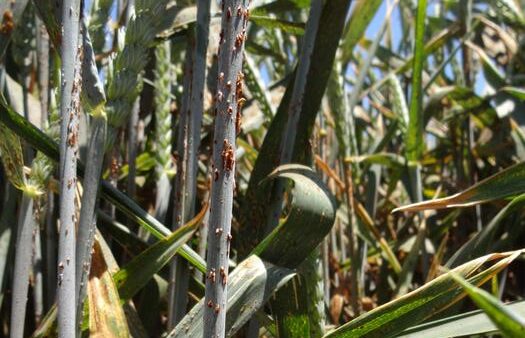After returning from a Plant Breeders Without Borders project in Nepal, I was struck by some of the challenges that I’ve seen in plant breeding. In particular, one thing I saw was the difficulties we face in integrating underused crops into mainstream crops. The project looked at the following species:
• Finger millet (Eleusine coracana)
• Foxtail millet (Setaria italic)
• Sweet buckwheat (Fagopyrum esculentum)
• Tartary buckwheat (Fagopyrum tataricum)
The concept of the project was to train farmers on how to develop their own varieties of underused crops in partnership with the local group managing the project, Librid Nepal.
By showing farmers the steps of variety development, they can be involved in the process. We hope for a twofold result: that there will be a greater uptake of varieties that are developed as the farmers are involved in the whole process from the beginning, and that farmers will see the value in plant breeding and the importance of variety development so that this will encourage them to buy seed in the future.
The concept is to move from the informal to the formal seed sector. By developing new varieties that are adapted to local conditions and are higher yielding, we hope that this will encourage investment and the development of a formal seed sector, where farmers will start their own seed companies in underused crops.
However, my experience in Nepal showed me that there are many steps involved in this journey and breeding is just part of the bigger picture.
If better yielding, new varieties are developed, they need to be combined with an agronomy package that helps the variety achieve these greater yields. Therefore, education of improved agronomy practices goes hand-in-hand with improved seed. Not only that, but understanding the local conditions is also important. What inputs can the farmers afford or access? For example, in Nepal, most of the farming is on terraced country so it is not possible for mechanization. This makes the process more labor intensive and there are fewer labor units available due to people looking for an income outside the village. Therefore, we have to think of breeding traits that could decrease the labor costs. An example of this in Nepal was to use a single row planter, such as an earth way planter, rather than broadcasting seed. A new variety would have improved emergence vigor to outcompete weeds at the seedling stage. This would then make it easier for farmers to weed the crops in rows as they can identify the finger millet plants at an early stage from the weeds that are between rows.
I explained to the farmers that plant breeding in underutilized crops is like a three-legged stool. One leg is varietal improvement, the next is improved agronomy practices and the last is value adding. For the stool to stand you need all three legs to be balanced.
For farmers to make a greater profit from improved yielding underused crops they must think about how they can value add to them, so that everyone is not just selling the raw product. Understanding more about the nutrition of an underused crop and how it can improve a person’s health could lead to greater demand. Education of these traits to the consumer is the key.
As an example, Nepal uses an underused crop called finger millet and its malting characteristics. When finger millet is germinated and roasted, the malt that is formed is just behind barley in its quality and quantity. This malt has enzymes that can aid in the breaking down of more complex carbohydrates, which makes them easily digested. This is important for the transition period for infants moving from milk to solids. No one in the course in Nepal knew that they were working with a superfood that could improve the diet of their infants!
So you can now see that underused variety development is just one part of a package that must be delivered to the developing world. Moving these crops into becoming a mainstream crop would help to make the world more resilient to the effects of climate change.












